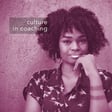Become a Creator today!Start creating today - Share your story with the world!
Start for free
00:00:00
00:00:01

Mindful Coaching
With the constructs of our mind, we are often preoccupied with the future or regressing to the past. Our minds are jittery and always creating possible scenarios that do not exist right now. Yet, in coaching, Presence is the decisive element, foundational for everything we do. What can we learn from the scientific practice of Mindfulness to support us in building the muscles of being here?
#mindfulness #coachingskills #coaching #ICF #presence
Recommended
Transcript
Introduction to Prime Space
00:00:03
Speaker
Welcome to Prime Space, a Prime Coaching Academy podcast with your host, Elias Kultori.
00:00:14
Speaker
Hello, everyone.
00:00:16
Speaker
Are you ready for a story?
00:00:18
Speaker
I have a story to tell you to get started.
00:00:21
Speaker
Here it is.
Organizing a Live Coaching Event
00:00:22
Speaker
A number of years ago...
00:00:25
Speaker
I was the co-director of events at ICF New Jersey.
00:00:31
Speaker
And we created, my co-director, Lynn Schaber, and I, we created this program, which was a panel of coaches.
00:00:41
Speaker
And it was a live event.
00:00:42
Speaker
This was way before pandemic.
00:00:45
Speaker
It was a live event, a panel of coaches, and we invited the whole chapter to come to this meeting room and...
00:00:52
Speaker
It was very well attended, and I don't remember anything that happened in that meeting, except that we had like four or five people in the panel, PCC and MCC coaches, and the room was really full.
00:01:07
Speaker
As I said, I don't remember any of the conversation specifically.
Core Competencies in Coaching
00:01:10
Speaker
However, I do remember very clearly towards the end of the program, we opened up
00:01:15
Speaker
for questions from the audience to the panel.
00:01:19
Speaker
And this person, a coach, a member of ICF New Jersey, raised his hand and here's the question that he asked.
00:01:28
Speaker
Of all the ICF core competencies, which one is the most important?
00:01:35
Speaker
And the panel looked at each other.
00:01:37
Speaker
I was facilitating the conversation, by the way.
00:01:41
Speaker
But I remember that the panel looked at each other
00:01:44
Speaker
And there was a couple of seconds there, what are we going to do with this question?
00:01:48
Speaker
And then one of the coaches raised his hand.
00:01:51
Speaker
He was an MCC coach, very experienced coach.
00:01:53
Speaker
He raised his hand and he said, I'll answer this question.
00:01:57
Speaker
And his answer was printed, is printed in my brain.
00:02:02
Speaker
I will never forget this answer.
00:02:04
Speaker
He said, all ICF core competencies are important.
00:02:11
Speaker
But if I had to choose one,
00:02:14
Speaker
I would choose presence, maintains presence.
00:02:20
Speaker
Because if I'm not truly present, I cannot do anything else.
00:02:29
Speaker
And I listened to that and I was like, whoa, aha moment for me, right?
Challenges in Mastering Presence
00:02:35
Speaker
And it's interesting because with all of the years that I have of experience being a coach trainer, being a mentor coach, being a coach supervisor, supporting coaches in gaining more skills and growing in their coaching, it's very common that I present the core competencies
00:03:00
Speaker
And I can see in the coach's eyes, like, okay, maintains presence, cultivating trust and safety.
00:03:07
Speaker
I got that.
00:03:09
Speaker
How can I ask more powerful questions?
00:03:11
Speaker
What can I do to evoke awareness?
00:03:14
Speaker
How can I bring my clients into action?
00:03:17
Speaker
What about the coaching agreement?
00:03:18
Speaker
And there is a lot of concern about these competencies, which is granted, right?
00:03:24
Speaker
We all know that they are very important.
00:03:26
Speaker
But we usually kind of overlook these two competencies and maintains presence is one of them.
00:03:33
Speaker
And it's fascinating to see as that coach continues to progress and grow and through the years, we all go back to maintains presence and cultivates trust and safety.
Brain's Role in Perception
00:03:47
Speaker
It's so fascinating because of that without presence.
00:03:53
Speaker
We can't do anything.
00:03:54
Speaker
We cannot even be ethical if we are not present.
00:03:58
Speaker
Even core competency number one, we can't demonstrate ethics if we are not truly present.
00:04:05
Speaker
And the fascinating aspect of that is because it is...
00:04:10
Speaker
a competency that we all as human beings have trouble with.
00:04:17
Speaker
We all as human beings have trouble in being truly present in the moment.
00:04:25
Speaker
And the reason for this is because we have this very active organ that
00:04:32
Speaker
in our bodies, inside our heads, that is a very committed organ.
00:04:39
Speaker
And that organ, our brains, have two functions.
00:04:41
Speaker
One is, of course, make sure that all body functions are working well.
00:04:47
Speaker
The brain is the one who is conducting, orchestrating everything that happens in our bodies, which is magnificent.
00:04:56
Speaker
And the second thing, the second function of our brain is to think.
00:05:01
Speaker
It's to construct.
00:05:02
Speaker
It's to absorb all of the information that we have around us and make sense of this world.
00:05:09
Speaker
That's the function of the brain.
00:05:11
Speaker
And that is wonderful because it protects us, it supports us into growing, it supports us to be alive.
00:05:19
Speaker
We are the human beings dominating this planet because of dysfunction of our brain.
00:05:26
Speaker
The problem is that usually we identify to these constructs of the brain wholeheartedly.
00:05:35
Speaker
And we start believing that everything that our brains are constructing is the absolute truth.
00:05:44
Speaker
We begin to identify who we are with the thoughts that is happening in our brains.
00:05:55
Speaker
We believe that everything that is happening in our minds is the truth.
00:06:03
Speaker
That's the distinction there.
00:06:04
Speaker
And that's what causes trouble because sometimes things happen to us decades ago and we made a construct that this is dangerous and then we carry this and it's decades later and we are still carrying that as part of our identity forever and ever.
00:06:23
Speaker
It's burdensome.
00:06:27
Speaker
The construct that the brain creates can be troubling to us, and it's hard for us to separate.
Mindfulness and Presence
00:06:34
Speaker
It's liberating.
00:06:37
Speaker
When we are able to notice that what is happening, the thoughts that are being created by our brains are not necessarily real, are not necessarily the truth, are not necessarily who we are.
00:06:53
Speaker
And when we are able to separate that, the thoughts that arise and what is real, we can catch a breath.
00:07:04
Speaker
And we can say, oh, maybe that was true a few decades ago.
00:07:10
Speaker
Maybe that is not the whole picture.
00:07:14
Speaker
Let me be curious about that.
00:07:18
Speaker
And you can see how helpful that separation is to the coach in the moment, right?
00:07:23
Speaker
We all construct.
00:07:25
Speaker
Every coach does that.
00:07:28
Speaker
It doesn't matter how many decades of experience a coach has.
00:07:33
Speaker
If there is a brain, if that coach has a brain, the coach is constructing.
00:07:37
Speaker
The client is bombarding us with stories, with ideas, with thoughts, with information.
00:07:42
Speaker
Of course, we are going to construct.
00:07:43
Speaker
That is part of active listening.
00:07:46
Speaker
That is the competency of listens actively.
00:07:51
Speaker
It's making sense of what the client is saying and truly being there, participating and understanding what the client is saying.
00:08:00
Speaker
However, active listening, if we think that way, it's almost like contradictory to maintain presence because active listening is the construct
00:08:10
Speaker
It's the understanding.
00:08:11
Speaker
It's the making sense of what the client is saying and maintains presence is really that ability to say, okay, this is just a construct.
00:08:21
Speaker
Let me be curious about it.
Mindfulness Misconceptions
00:08:24
Speaker
I say this because this distinction between thought and reality is
00:08:32
Speaker
is actually a science-based practice and it's the science-based practice of mindfulness
00:08:42
Speaker
And I know that when I said the word mindfulness, many of you may already have constructs about the word mindfulness because mindfulness has been used in so many different ways, sometimes even overused word.
00:08:57
Speaker
And oftentimes, from mindfulness, we think of meditation.
00:09:02
Speaker
From meditation, we think we need to be sitting on the pillow for an hour a day.
00:09:06
Speaker
And then we think of Eastern philosophies, even Eastern religions.
00:09:09
Speaker
And then we start putting all of these barriers around that.
Mindfulness as a Science-Based Practice
00:09:13
Speaker
There are many connections there, but mindfulness, we need to be mindful that mindfulness is a science-based practice researched, and the pioneer of this particular practice is Dr. Jon Kabat-Zinn from the University of Massachusetts, who has written extensively about this practice of being conscious of what our brains are constructing,
00:09:42
Speaker
and what is truly real.
00:09:44
Speaker
And there are, if you read about mindfulness, you're going to see the tremendous benefits of mindfulness in so many areas, all areas virtually, of what we do as human beings.
00:09:57
Speaker
Burnout, addiction, suicide, team dynamics, productivity, innovation, bias.
00:10:04
Speaker
Focus.
00:10:05
Speaker
You can see how much this is part of coaching.
00:10:10
Speaker
So this is one of the things that mindfulness...
00:10:16
Speaker
in this mindfulness research has done is that mindfulness is not something that we turn on or turn off.
00:10:22
Speaker
Okay, now I'm gonna have a conversation, I'm gonna turn mindfulness and I'm going to understand the separation of my thoughts and what is real and all of that.
00:10:30
Speaker
Mindfulness, it has to be a daily practice.
00:10:34
Speaker
It's a muscle that we need to develop.
00:10:38
Speaker
It's a practice that for us to understand and be able to have authority over our thoughts.
00:10:47
Speaker
That the thoughts, the constructs come to mind and then we have a choice.
00:10:51
Speaker
I'm going to believe in that thought or not.
00:10:55
Speaker
I'm going to, I am the one who is in charge, not my brain is in charge of my thoughts, but I am the one who is going to decide where I'm going to place my attention, where I'm going to be mindful.
00:11:09
Speaker
That is a daily
Mindfulness in Coaching Practice
00:11:10
Speaker
practice.
00:11:10
Speaker
And that to me is another proof that coaching is not something that we do, that we turn on and turn off.
00:11:16
Speaker
Maybe the practice of coaching is something that we turn on and turn off, but the concept of coaching,
00:11:23
Speaker
The exercise of the values and what is at the core of coaching is something that we do on a daily basis.
00:11:30
Speaker
It's something that we are committed to live by.
00:11:35
Speaker
I say all of this to bring this to your attention.
00:11:40
Speaker
There is something about mindfulness and mindfulness practice that can truly be of incredible power and impact in us as coaches.
00:11:51
Speaker
At Prime Coaching Academy, we have a whole module talking about mindfulness.
00:11:55
Speaker
this practice of mindfulness and the impact of the science-based research into the competency of maintain presence.
00:12:06
Speaker
And we talk extensively about this aspect of mindfulness and what we can learn from this particular practice.
00:12:14
Speaker
So I would encourage you all to pay attention to this.
00:12:18
Speaker
It's not something that we need to sit on the pillow.
00:12:21
Speaker
That's not what mindfulness is about.
00:12:24
Speaker
Mindfulness is just that distinction between my thoughts and what is real and not be completely identified with the thought and simply go along with the thought.
00:12:38
Speaker
So I would encourage you every day, once in a while, take a moment to notice how active your brain is right now.
00:12:51
Speaker
Can you detach yourself from that activity, from those thoughts, and be here in the now, in the moment?
00:12:59
Speaker
If you do that, that second that you do, that is mindfulness practice.
00:13:04
Speaker
And I encourage you also to do some research on mindfulness.
00:13:09
Speaker
Start with Dr. Jon Kabat-Zinn.
00:13:11
Speaker
He has written so many books about the practice of mindfulness, and I...
00:13:17
Speaker
I would be curious to hear from you what that comes up for you and what you learn from this practice and the practice of you being present to yourself.
00:13:27
Speaker
And one of the things that we say in mindfulness practice is we cannot help the other if we are not able to help ourselves.
00:13:37
Speaker
We are not going to be able to support our client to distinguish between the stories that they are creating and what is real if we are not able to see the stories that we create for ourselves and what is real.
00:13:50
Speaker
And I'm pretty sure that this will be of insight for you and I wonder how much of that is going to impact your presence, your presence to your clients and your presence to yourself.
00:14:05
Speaker
Thank you for listening.
Podcast Conclusion
00:14:07
Speaker
And don't forget to subscribe.
00:14:11
Speaker
Don't forget to click on those stars there and give us a recommendation and share these podcasts with others.
00:14:21
Speaker
And I will see you next week, everybody.
00:14:23
Speaker
Take good care.



















